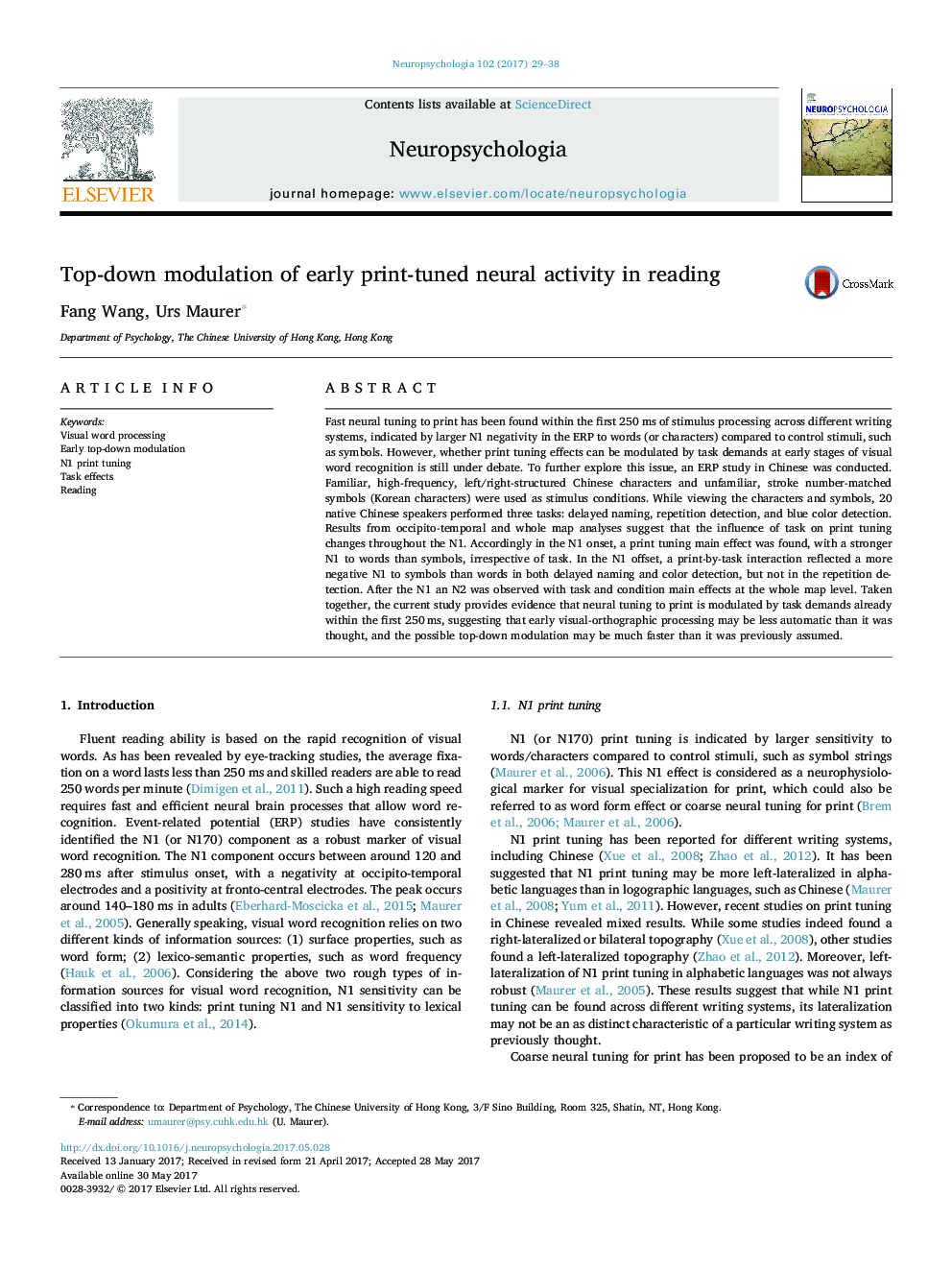| Article ID | Journal | Published Year | Pages | File Type |
|---|---|---|---|---|
| 5045134 | Neuropsychologia | 2017 | 10 Pages |
â¢Top-down modulation on print tuning effect was examined.â¢We manipulated print tuning (Chinese vs. Korean character) and tasks (top-down).â¢Print tuning was uninfluenced by task in the N1 onset, but modulated in the N1 offset.â¢Task demands influence print tuning already within 250 ms.
Fast neural tuning to print has been found within the first 250Â ms of stimulus processing across different writing systems, indicated by larger N1 negativity in the ERP to words (or characters) compared to control stimuli, such as symbols. However, whether print tuning effects can be modulated by task demands at early stages of visual word recognition is still under debate. To further explore this issue, an ERP study in Chinese was conducted. Familiar, high-frequency, left/right-structured Chinese characters and unfamiliar, stroke number-matched symbols (Korean characters) were used as stimulus conditions. While viewing the characters and symbols, 20 native Chinese speakers performed three tasks: delayed naming, repetition detection, and blue color detection. Results from occipito-temporal and whole map analyses suggest that the influence of task on print tuning changes throughout the N1. Accordingly in the N1 onset, a print tuning main effect was found, with a stronger N1 to words than symbols, irrespective of task. In the N1 offset, a print-by-task interaction reflected a more negative N1 to symbols than words in both delayed naming and color detection, but not in the repetition detection. After the N1 an N2 was observed with task and condition main effects at the whole map level. Taken together, the current study provides evidence that neural tuning to print is modulated by task demands already within the first 250Â ms, suggesting that early visual-orthographic processing may be less automatic than it was thought, and the possible top-down modulation may be much faster than it was previously assumed.
